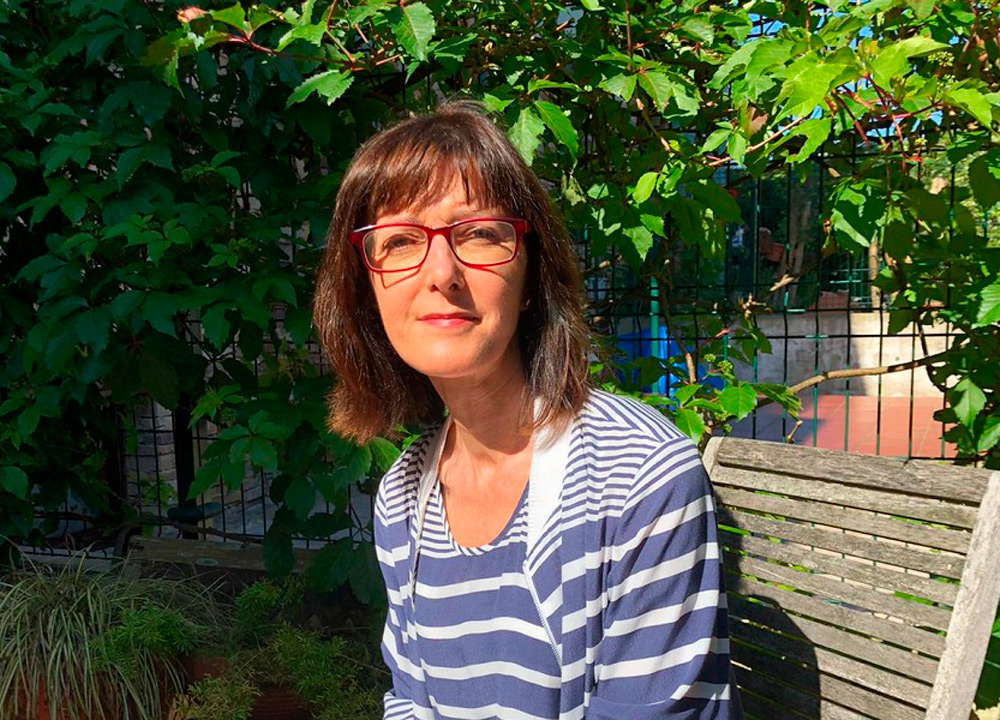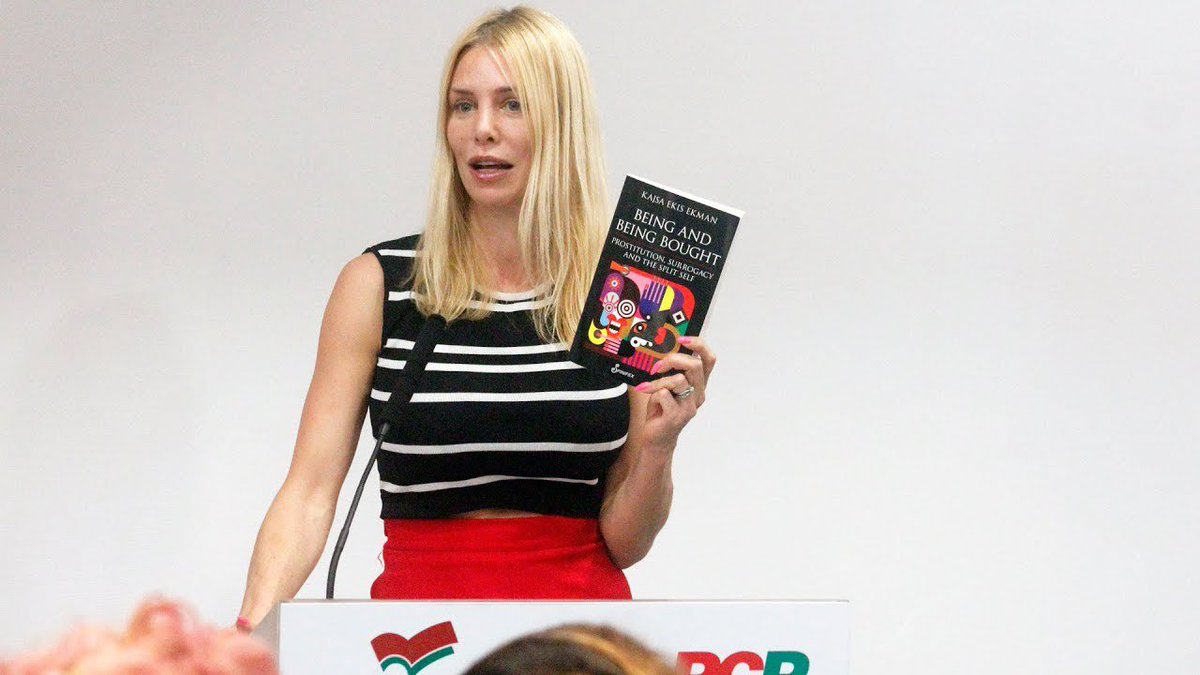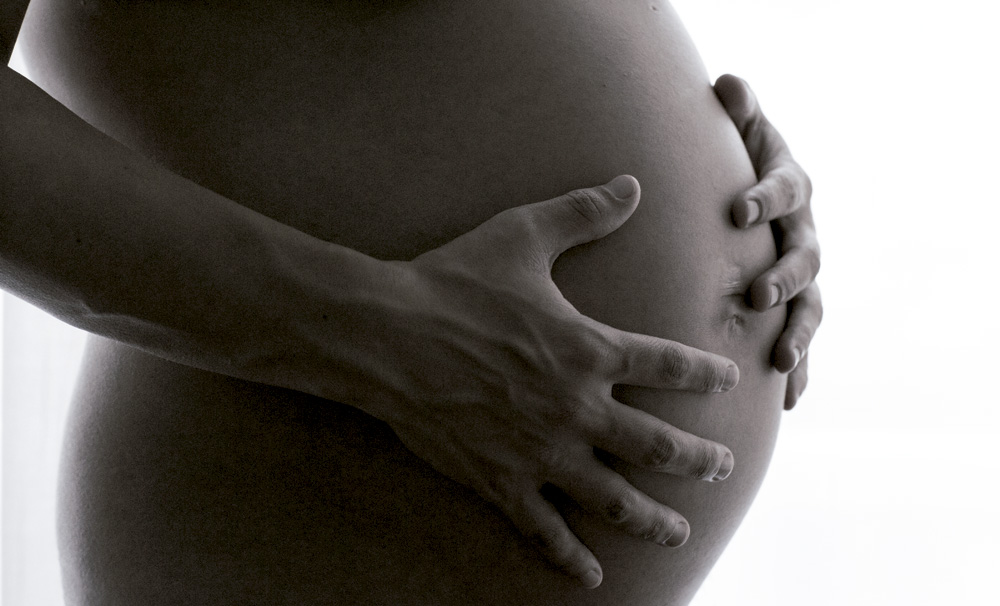"Producing children in the chain and on the other side of the border is not sustainable"
- Civil Law Professor Itziar Alkorta Idiakez believes that surrogate pregnancies are an attack on human rights. However, as long as an international ban is not possible, it is in favour of restrictive regulation.

The debate followed the presentation at the Congress of Deputies of the neoliberal proposal for a law on the regulation of surrogate pregnancies (ANV) in 2017 by Citizens. That same year, EH Bildu made a very different proposal for legalization in the Basque Parliament: public health and without financial compensation. In feminism, the abolitionist trend has been the most echoed, among other reasons because renters are based on the exploitation of the female body. Members of the feminist movement of the Basque Country have also disseminated a critical analysis, placing this globalized business in the clash between life and capital.
Itziar Alkorta Idiakez (Donostia-San Sebastián, 1967) is one of the biggest experts in this issue for Basque feminists. Professor of Civil Law of the UPV/EHU, defended in 2001 his doctoral thesis on the legal treatment of assisted reproduction, which two years later he published as a reference book. Among other things, he formed the postdoctoral program at two bioethics centers in the United States, where he had the opportunity to learn about the phenomenon of egg sales and commercial surrogate pregnancy. Since then, it has made recommendations on the regulation of biotechnologies addressed to the European Parliament and, in addition to its research and advisory activity, is carrying out important dissemination work.
On November 18, 2020, when Pikara Magazine was ten years old, I interviewed him at the colloquium organized by Azpeitiko Emakumeen Txokoa. I confessed that motherhood had led me to change my mind and said: “This issue is very experiential, all the arguments are valid, that leave us both in the head and in the bowels.”
The name has existence. What name will we use, “renters” or “surrogate pregnancies”?
I don't like either. The “surrogate pregnancy” comes from an anglicism that originates in the case of Baby M: In 1986, a New Jersey doctor (EE.UU.) She took advantage of a figure called surrogacy, which is provided for in the state's civil law, to sign a contract with a second woman for not having brought children. Mary Beth Whitehead became pregnant with her baby through artificial insemination, after she remembered that she was going to give birth. The term imported is absurd in our context, both from the point of view of etymology and meaning. It states that representation is nothing more than a contract. On the other hand, I do not like “renters”, because they are not words of respect for women who participate in this type of contract. Among all of us, we should invent another word!
From the situation in the United Kingdom: "If you have no choice to have children, if your family member or friend is willing to keep the pregnancy unexchanged and give you the child, you can go to the National Audience."
Who do you think should be the mother of the newborn before the law?
Reproductive fragmentation is a veritable breach of a legal head. When the researchers realized that women are able to admit eggs from all over the world (instead, in order to accept organs, genetic compatibility is needed), they received a big surprise. I think it was a fact of civilization. The capital saw the opportunity: when the human fertilization industry managed to transplant the eggs in vivo, freeze them and export them, it discovered the business of producing children in chains. Let us suppose that the egg is put by an anonymous donor from Ukraine in exchange for money, that this fertilized egg is transferred to an Indian woman and that, when the child is born, a woman from San Sebastian will receive it for having paid the procedure. From a legal standpoint, who is the mother? Who's put the genetic load on? Have you had any physiological relationship with the child during pregnancy? Or the social mother, as happens with adoptions? If we want to give a proper answer, in addition to the potential parents, we must think about the children, the women and the society that we want to build.
Who is the mother, according to law, in the United States?
What you pay is very clear.
But is it the mother who gives birth in Spain?
It is not regulated or prohibited in Spain. In 1988, the law governing human reproductive techniques was drafted and established that such contracts are not valid. We must therefore use the civil code: it is the mother who gives birth, not the genetic mother, nor the mother who pays. But the genetic father can ask for paternity and most couples do it: the father will request the DNA test in the country of birth, register the child and then his partner will carry out the procedures for adoption. In 2019, the Ministry of Justice prohibited the registration of foreign children by instruction, unless a judge of that country issued a judicial decision on the matter. This resolution, which is not in Ukraine (but in URL0). ), has caused serious problems to the families of the alleged members of the eta. In addition, the Ukrainian Public Prosecutor's Office has intervened in a hospital in the Russian capital, charged with a crime of child trafficking.

Even if he believes that the practice of surrogate pregnancies is contrary to human rights, he is in favour of regulating them.
I've had the opportunity to meet two models close by. On the one hand, in California, the [EE.UU phenomenon.] It's totally accepted and empty. They are 35 years old and very well paid! Many young people use it to pay for their studies, they charge about 100,000 dollars. The law requires women to have a minimum income to enable them to raise their children in an appropriate environment. In other words, they are not poor women, you cannot surrender an immigrant without papers.
On the other hand, I have known the situation of women in India, both those who emigrate to India and Australia. They are poor women and, besides getting access to money, they see it as a strategy to have decent living conditions for nine months: with their children, they will be far from their husbands, they will eat three times a day…
Critical voices have christened these places as ‘women’s farms’ or ‘child-making factories’.
Yeah, but they're hospitals. There, women are well monitored, as no one is willing to pay a woman if the pregnancy is not guaranteed from a health point of view. I believe that we should go to an international ban, because I see exploitation in that practice. But it is a dream, because it is deeply rooted in the United States; it has not even been put on the agenda at the UN general assembly. Meanwhile, regulating in our society would be a way to reduce demand, without infringing anyone’s rights. My proposal is that, as now, it is the mother who gives birth, not a mediator or a surrogate, and in the civil registry she appears first. Subsequently, and with the approval of the judge, the voluntary donation of the girl will be made. Second condition: the child will be able to know the data of his/her origin in the civil registry. Finally, continental law provides that human benefits cannot be met. I can't buy a kidney, and at the same time, being able to use a woman's body to be a child should be out of business. If we find surrogate pregnancies acceptable, are we prepared to do so in a sovereign and sustainable manner? I'm ready.
The problem is globalisation: many families prefer to go to a country that has legalised the trade contract rather than accept the conditions of the restrictive model that you are proposing.
That's right. In Australia, they legalized it at first, but then they decided that it could only be altruistic, unpaid. People prefer to go to India or Thailand, as you said, because they do not want to have news of the woman who has given birth. But in Australia something even more disappointing has happened to my thesis: although they have had the courage to describe surrogate pregnancy as an extra-territorial crime in the Penal Code, that law has not been applied and they continue to register children. Why? Because bringing parents to jail means violating the doctrine that must take precedence over the best interests of the child.
In France, however, surrogate gestations have been banned by the Ministry of Health. What happens there with the best interests of minors?
In France they have been much more demanding, yes. A heterosexual couple had brought their son from California, but the judge assured that they knew that contract was illegal, so he ordered his adoption, although he was born through his father's seed. They came to the Court of Human Rights, the child was 14 years old, grew up without nationality in that process… Strasbourg decided that that child was not to blame, that they were their parents and that they were entitled to a retroactive nationality. A malicious mechanism has been developed, that is, families may know that they are against the law, but the business is well structured and there are the agencies that charge to solve the problems that will arise along the way. States could easily fight against the activity of these agencies, but they do not. They are very quiet offering this service.
On the situation in the French State: "I think it is hypocritical to ban surrogate motherhood and at the same time accept the adoption model of removing children from immigrants"
Are you in favour of punishing potential parents who have committed legal fraud?
I am in favour of legalising agreements that will help to do as little damage as possible until an international ban is reached. In the United Kingdom, for example, if you have no choice to have children, if your family member or friend is willing to keep your pregnancy without economic exchange and provide you with a child, you can go to the National Court to explain the situation and decide whether that agreement is pure, that is, if there is real informed consent.
If so, would we accept the motto “my body, my decision”?
Yes. There is no price, there are no incentives or pressures, but, for example, the desire to help my sister, I believe that this woman is free and that we must respect her autonomy.
What if motivation isn't to help a family member or friend, but to help strangers as militancy?
In this case, the judge would also decide, through expert reports, whether the woman has given her informed consent. Why not?
Women educate us in the sacrifice towards others. In the egg business, we've seen that they use altruism to attract women.
The Citizens’ Bill proposes an “altruistic modality with consideration”. Let us not repeat the mistakes in egg donation! The argument of altruism is very superficial, it only serves to give nice coverage to the system. Both women and men donate the gametes to enter a thousand euros in their pocket, which is why they use private clinics and not public hospitals. Euphemism serves to disarm awareness and increases the performance of industry. In the United States, eggs are auctioned! A Harvard Caucasian student can easily ask for $120,000. At least they are not hypocritical!
One Canadian State has approved the registration of children with more than two parents from all over the world. Do you think it is a good option to protect and promote alternative models of reproduction?
Yeah, I think that's the way. Among these biological and social figures a surveillance agreement is signed, all participate in the education of the child, the child knows and accepts his/her biography… However, the dynamics of surrogate pregnancies reinforces the traditional structure of the couple, even in the case of homosexual couples.
In any case, we must ask ourselves whether having children is a right. I've heard an activist for surrogate pregnancies: “I am a woman, I have the right to carry out my reproductive project and the State must guarantee it.” I believe that this right that Citizens have included in the programme does not exist either. International adoption regulations clearly indicate that children have the right to be parents, but that parents do not have the right to have children. We have to keep it.
Feminists against renters call for the promotion and facilitation of adoptions. But exploitation and trafficking have also been denounced about adoption, both in impoverished countries and among immigrants.
Today, we are bringing more children for surrogate motherhood than for international adoption, as sources, including ethical problems, have been closed. Both issues are closely related: families have seen a new path in surrogate pregnancies. Adoption rates in France are very good, but what happens with internal adoptions is not clear: pregnant women can start the pre-adoptive process anonymously, and impoverished immigrant women are the ones who most take this option. I think it is hypocritical to ban surrogate maternity hospitals and at the same time to accept this model of taking children out of immigrants.
The Government of India has succeeded in radically reducing the phenomenon of surrogate pregnancies in pregnancy. Can you explain?
They have been politically very quick. During the economic crisis, in some highly industrialized states in India, so-called “innovation laboratories” were launched, in some cases with clinical trials and in others with surrogate mother monitoring. In other words, they created an industry with human meat as a raw material. Impoverished people were heading to these hospitals because they offered good conditions, but they were transactions that would not be admitted here. The Indian Parliament took a subtle decision: not to admit the introduction of external embryos into customs, on health grounds. That was how the supply was cut, because foreigners were not willing to go through the whole process in India. Subsequently, by means of a law, the practice of surrogate pregnancies has been limited to the altruistic mode among the Indians. In the explanatory statement, they have pointed out that surrogate gestations are a new branch of biocolonialism. I think this term is really revealing.
Has the pandemic paralyzed the so-called reproductive tourism?
Egg exports have not been interrupted. During surrogate gestation there have been problems in determining the date of departure abroad in search of the baby or in the scheduling of cesarean sections, due to the great uncertainty of the possible parents to travel.
Can it be a good time to change something?
Yes! COVID-19 has caused great damage, but we should take advantage of this context for things to recover. I believe that producing children in the chain and also at the border is not sustainable.
Buy a jersey, pants, shoes, car, home, couch, a big TV and a warm blanket on the couch so you can enjoy the big TV. Buy a pack of doritos, beers and pizza that you'll share with your friends.
Buy. Buy your successor. Buy what your child will be. Buy the body of your... [+]




















